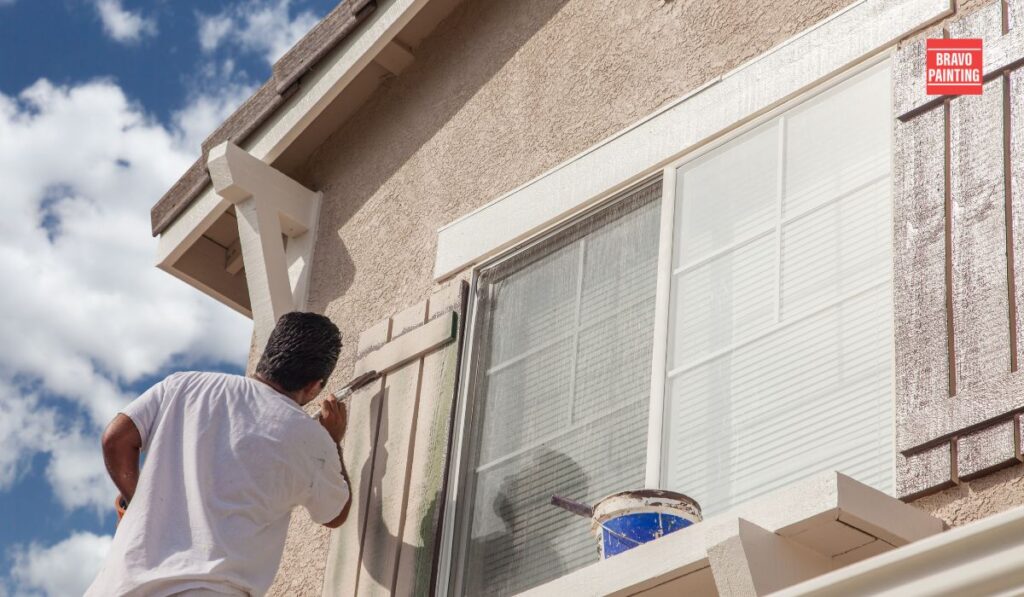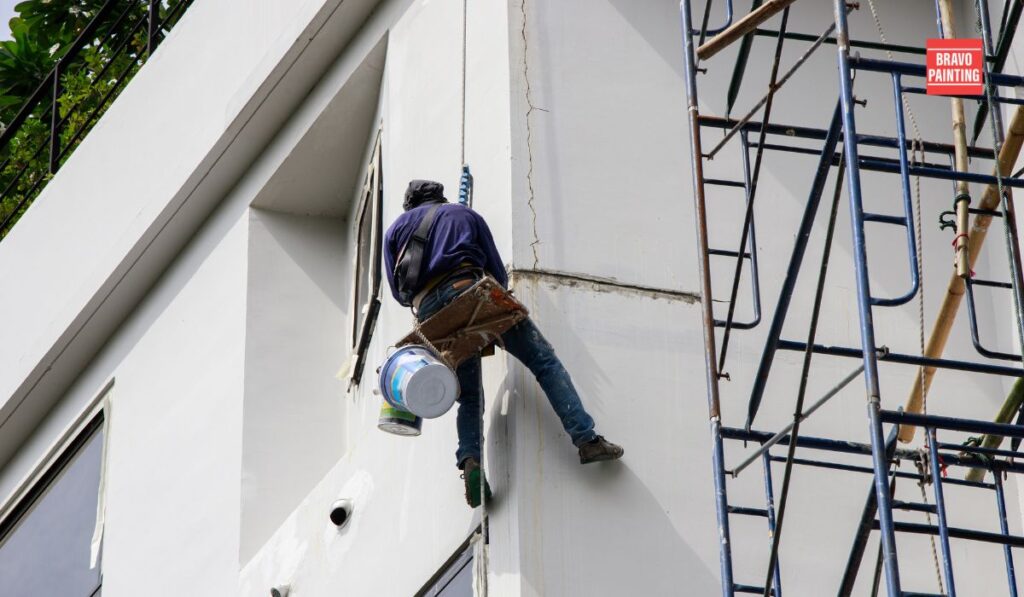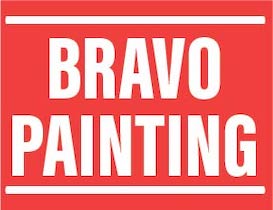In the world of commercial property management, maintaining the exterior appearance of buildings is paramount.
The first impression a building makes on clients, tenants, and visitors often begins with its exterior.
Whether it’s a retail storefront, office complex, or industrial facility, a well-maintained exterior speaks volumes about the professionalism and attention to detail of the property owner or manager.
One of the most impactful ways to enhance the exterior aesthetics of a commercial property is through a fresh coat of paint.
However, choosing the right commercial exterior painting contractor can be a daunting task.
With so many options available, it’s essential to follow a systematic approach to ensure you select a contractor who can deliver quality results on time and within budget.
This step-by-step guide will help you navigate the selection process with confidence.
Define Your Requirements
Before reaching out to potential painting contractors, take the time to define your project requirements clearly.
Consider factors such as the size of the building, the scope of work (e.g., surface preparation, priming, number of coats), desired timeline, and budget constraints.

Having a clear understanding of your needs will not only help you communicate effectively with prospective contractors but also enable them to provide accurate estimates and recommendations.
Research Potential Contractors
Once you’ve established your project requirements, begin researching potential painting contractors.
Start by seeking recommendations from trusted sources such as colleagues, industry associations, and online review platforms.
Additionally, explore contractor directories and websites to compile a list of candidates.
Pay close attention to each contractor’s experience, credentials, portfolio of past projects, and customer reviews.
Conduct Interviews
Narrow down your list of potential contractors and schedule interviews with each candidate.
During the interviews, ask probing questions to assess their level of expertise, communication skills, and professionalism.
Inquire about their experience with commercial exterior painting projects similar to yours, their process for surface preparation and paint application, and their approach to project management and quality control.
Feel free to request references from past clients and follow up with them to gauge satisfaction levels.
Request Detailed Proposals
After conducting interviews, request detailed proposals from the contractors who best meet your project requirements.
A comprehensive proposal should include:
- A breakdown of costs.
- A timeline for completion.
- A description of materials and techniques to be used.
- Any warranties or guarantees offered.
Review each proposal carefully, paying attention to pricing transparency, clarity of scope, and adherence to industry standards.
Evaluate Value Proposition
When comparing proposals, avoid simply selecting the lowest bidder. Instead, focus on each contractor’s overall value proposition.
Consider factors such as the quality of materials and artistry, reputation for reliability and customer service, adherence to safety protocols, and willingness to accommodate your specific needs.
Ultimately, choose the contractor that offers the best combination of quality, affordability, and professionalism.
Finalize Contract and Schedule
Once you’ve selected a contractor, work closely with them to finalize the contract details and schedule the painting project.
Ensure that the contract includes all agreed-upon terms and conditions, including payment schedule, project timeline, scope of work, and warranties.
Additionally, establish open lines of communication to facilitate ongoing updates and address any concerns that may arise during the project.
Monitor Progress and Provide Feedback
Throughout the painting process, maintain regular communication with the contractor to monitor progress and address any issues promptly.
Conduct periodic site visits to ensure that work is being performed according to the agreed-upon specifications and quality standards.
Provide constructive feedback as needed to ensure that any concerns are addressed promptly and satisfactorily.
Ensure Compliance with Regulations and Standards
Before the painting project begins, ensure that the selected contractor complies with all relevant regulations and industry standards.
This includes obtaining necessary permits, adhering to environmental regulations regarding paint disposal and emissions, and following safety protocols to protect workers and occupants of the building.
A reputable contractor will prioritize compliance with all applicable laws and regulations to ensure a smooth and lawful project execution.
Monitor Quality Assurance
Throughout the painting process, it’s essential to maintain a focus on quality assurance to ensure that the finished result meets your expectations.
Work closely with the contractor to establish checkpoints for inspecting artistry, surface preparation, paint application techniques, and color consistency.
Address any deviations from the agreed-upon standards promptly to prevent issues from escalating and ensure that the outcome reflects the desired aesthetic and durability.
Final Inspection and Sign-off
Once the painting project is complete, conduct a final inspection to verify that all aspects of the project have been completed to your satisfaction.
Check for any remaining touch-ups, areas of concern, or discrepancies between the agreed-upon scope and the finished result.

Once you are satisfied with the work, sign off on the project and ensure that all contractual obligations, including final payments and warranty documentation, are fulfilled.
Maintain Ongoing Maintenance
After the painting project is complete, it’s essential to implement a proactive maintenance plan to preserve the integrity and appearance of the exterior surfaces.
Regularly inspect the painted surfaces for signs of wear, weathering, or damage, and address any issues promptly to prevent costly repairs or premature repainting.
Consider scheduling periodic touch-up painting as needed to maintain a fresh and vibrant appearance and extend the lifespan of the paint job.
Conclusion
Choosing the right commercial exterior painting contractor requires careful consideration of various factors, including experience, reputation, quality of artistry, and adherence to regulations and standards.
By following this step-by-step guide, property owners and managers can navigate the selection process with confidence and ensure that their painting project is completed to their satisfaction.
With proper planning, communication, and oversight, a professional painting contractor can transform the exterior of a commercial property, enhancing its curb appeal, durability, and value for years to come.
For reliable commercial painting services, visit Bravo Painting today.
FAQs
Why is maintaining the exterior appearance of commercial buildings important?
The exterior appearance of commercial buildings is crucial because it forms the first impression for clients, tenants, and visitors. It reflects the professionalism and attention to detail of the property owner or manager. A well-maintained exterior communicates reliability, quality, and care, which can positively influence business relationships and perceptions.
How can a fresh coat of paint enhance the aesthetics of a commercial property?
A fresh coat of paint can significantly enhance the aesthetics of a commercial property by revitalizing its appearance. It can cover signs of wear and tear, weathering, and other imperfections, providing a clean and polished look. Additionally, a new color scheme or paint finish can modernize the building’s appearance, making it more visually appealing and in line with current trends or branding.
How should I define my project requirements before selecting a painting contractor?
Defining project requirements involves assessing various factors to determine the scope of work and expectations. Consider the size and type of the building, specific areas requiring painting, surface preparation needs, desired timeline for completion, and budget constraints. Clearly outlining these requirements will help you communicate effectively with potential contractors and ensure that they understand your needs.
Where can I find potential painting contractors for my commercial project?
You can find potential painting contractors through various channels. Seek recommendations from trusted sources such as colleagues, friends, or industry associations who have experience with commercial painting projects. Additionally, utilize online resources such as contractor directories, review platforms, and social media to research and compile a list of candidates.
What should I ask during interviews with potential painting contractors?
During interviews with potential painting contractors, ask detailed questions to assess their expertise, professionalism, and suitability for your project. Inquire about their experience with similar commercial exterior painting projects, including the types of buildings they’ve worked on and the challenges they’ve encountered. Discuss their process for surface preparation, paint selection, application techniques, and quality control measures. Request references from past clients and follow up to gauge satisfaction levels.
What should a comprehensive proposal from a painting contractor include?
A comprehensive proposal from a painting contractor should provide detailed information about the project scope, timeline, costs, materials, and warranties. It should outline the specific tasks to be completed, such as surface preparation, priming, number of coats, and cleanup. The proposal should also specify the type and quality of paint to be used, any special techniques or finishes, and any additional services or guarantees offered by the contractor.
How do I evaluate the value proposition of different painting contractors?
When evaluating the value proposition of different painting contractors, consider factors beyond just the initial cost. Look at the quality of materials and artistry offered, the contractor’s reputation for reliability and customer service, their adherence to safety protocols and regulations, and their ability to accommodate your specific needs and preferences. Assessing these factors will help you choose a contractor who can deliver the best overall value for your investment.
What should be included in the contract with the selected painting contractor?
The contract with the selected painting contractor should include all agreed-upon terms and conditions to ensure clarity and protection for both parties. This consists of the project scope, timeline, payment schedule, warranties or guarantees, and any special provisions or requirements. Make sure the contract reflects the details discussed during the proposal stage and that both parties have a clear understanding of their responsibilities and obligations.


